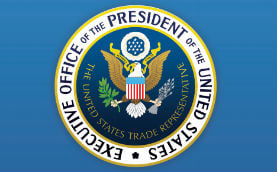
The annual list overview helps to guide the U.S. Government’s position towards foreign countries when it comes to copyright enforcement.
The most recent version featured traditional pirate sites such as The Pirate Bay, Rapidgator, and Gostream, but also the Russian social network VK and China-based marketplaces Alibaba and Taobao.com.
Since the list only identifies foreign sites, American services are never included. However, this restriction doesn’t apply in Europe, where the European Commission announced this week that it’s working on its own piracy watch list.
“The European Commission – on the basis of input from the stakeholders – after thorough verification of the received information – intends to publish a so called ‘Counterfeit and Piracy Watch-List’ in 2018, which will be updated regularly,” the EU’s call for submissions reads.
The EU watch list will operate in a similar fashion to the US equivalent and will be used to encourage site operators and foreign governments to take action.
“The list will identify and describe the most problematic marketplaces – with special focus on online marketplaces – in order to encourage their operators and owners as well as the responsible local authorities and governments to take the necessary actions and measures to reduce the availability of IPR infringing goods or services.”
In recent years various copyright holder groups have repeatedly complained about a lack of anti-piracy initiatives from companies such as Google and Cloudflare, so it will be interesting to see if these will be mentioned.
The same is true for online marketplaces. Responding to the US list last week, Alibaba also highlighted that several American companies suffer the same piracy and counterfeiting problems as they do, without being reprimanded.
“What about Amazon, eBay and others? USTR has no basis for comparison, because it does not ask for similar data from U.S. companies,” Alibaba noted in a rebuttal.
The EU watch list is clearly inspired by the US counterpart. It shows striking similarities with the US version of the watch list and some of the language appears to be copied (or pirated) word for word.
The EU writes, for example, that their list “will not mean to reflect findings of legal violations, nor will it reflect the European Union’s analysis of the general intellectual property rights protection and enforcement climate in the country or countries concerned.”
Just a few days earlier the USTR noted that its list “does not make findings of legal violations. Nor does it reflect the U.S. Government’s analysis of the general IP protection and enforcement climate in the countries connected with the listed markets.”
The above means that, despite branding foreign services as notorious offenders, these are mere allegations. No hard proof is to be expected in the report, nor will the EU research the matter on its own.
If the US example is followed, the watch list will be mostly an overview of copyright holder complaints, signed by the authorities. The latter is not without controversy, as China says it doubts the objectivity of USTR’s report for this very reason.
Copyright holders and other interested parties are invited to submit their contributions and comments by 31 March 2018, and the final list is expected to be released later in the year.
Source: TF, for the latest info on copyright, file-sharing, torrent sites and more. We also have VPN discounts, offers and coupons

 The North American Free Trade Agreement (
The North American Free Trade Agreement (

 Through a series of new proposals, the European Commission is working hard to
Through a series of new proposals, the European Commission is working hard to 

 Late last week, the Office of the US Trade Representative (USTR) released an updated version of its “Out-of-Cycle Review of Notorious Markets,” identifying some of the
Late last week, the Office of the US Trade Representative (USTR) released an updated version of its “Out-of-Cycle Review of Notorious Markets,” identifying some of the  Late last year Playboy sued the popular blog
Late last year Playboy sued the popular blog 

